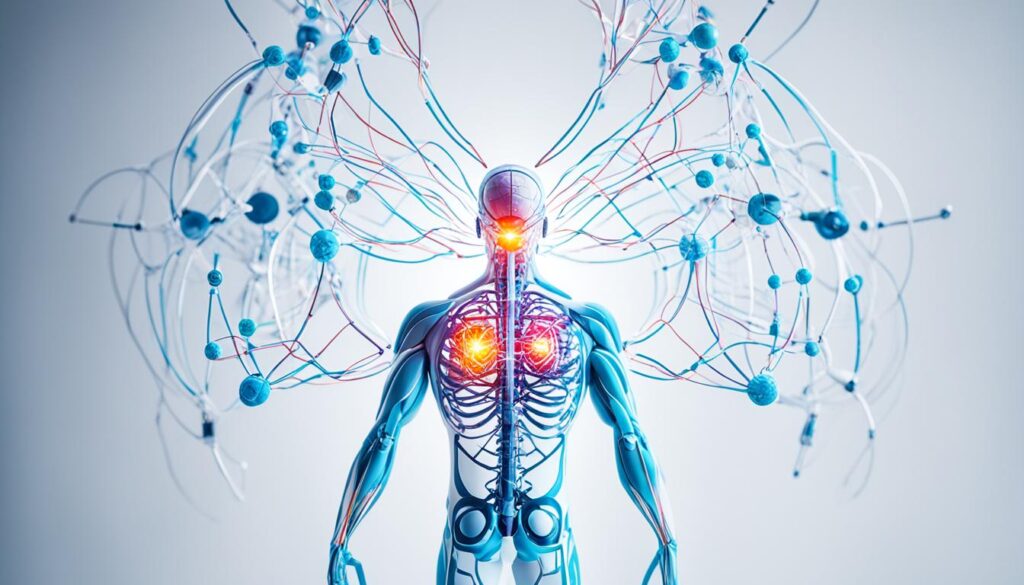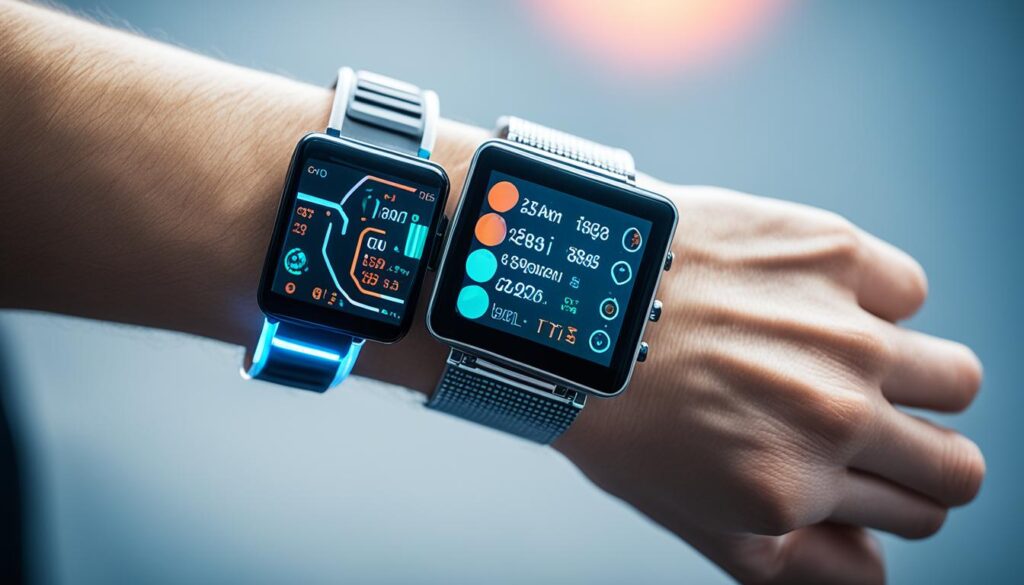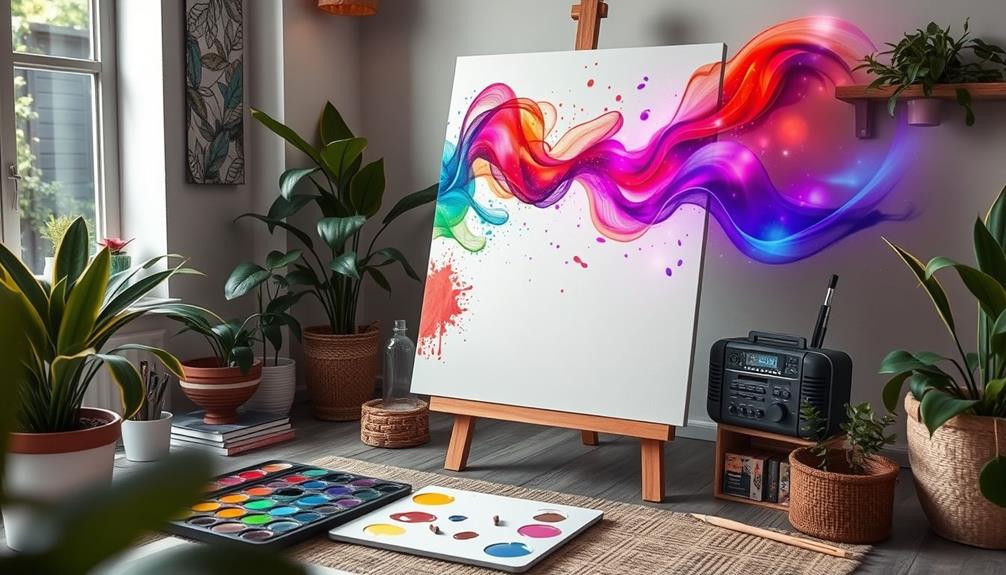Did you know intermittent fasting can improve your metabolic health? It can also enhance your brain function and speed up cellular repair. This trend, known as biohacking, lets you take control of your health and well-being. Through practical self-experimentation, it’s a way to reach *personal wellness*, *peak performance*, and *self-optimization*.
This guide introduces you to nutrition adjustments and advanced sleep optimization techniques. These strategies set the stage for unlocking your potential. Discover how simple lifestyle changes can dramatically improve your health and performance.
Key Takeaways
- Intermittent fasting can improve metabolic health and cognitive function.
- Quality sleep is crucial for physical recovery and emotional well-being.
- Nutrition plays a key role in energy production and hormone regulation.
- Mindfulness and meditation can boost cognitive function and reduce stress.
- Supplements can help fill nutritional gaps and enhance overall health.
- Cold exposure can improve metabolism and resilience to stress.
- Wearable technology aids in data collection for personalized biohacking strategies.
Understanding Biohacking
Biohacking combines science and personal trials to boost health and performance. What exactly is biohacking? It’s about changing biological systems to see how our lifestyle and surroundings can impact our health.
At the heart of biohacking is self-experimentation. This lets people use specific methods that match their body’s needs. Many use data to track health, brain function, and well-being. By studying this information, they can pick the best options for themselves.
Biohacking has several key areas, such as DIY biology and nutrigenomics. These fields range from studying tiny organisms to examining how nutrients affect our genes. Wearable tech, like fitness trackers, is a big tool for biohackers. It helps them monitor health stats in real time.
There’s also a growing interest in nootropics or smart drugs. These include things like caffeine and creatine that may sharpen your mind and make you more productive. Cold water therapy, fasting at certain times, and eating specific foods are other common biohacks.
While these new methods are intriguing, there are worries about their regulation. Blood tests are a key tool for tracking progress and health. It’s important to approach biohacking ethically. This ensures safety and responsibility in the community.
Benefits of Biohacking for Personal Wellness
Biohacking offers great advantages that help you grow personally. It boosts your energy, making your day more productive. People between 35 to 50 find it great for fighting aging signs. They manage their health better.
Adding exercises like HIIT is key. It boosts your body and brain through higher BDNF levels. These workouts improve your energy use and health.
A diet rich in nutrients goes well with exercise. It includes important vitamins and fats for cell repair. Techniques like intermittent fasting align with your body’s rhythms, cutting down unwanted fat linked to diseases.
Biohacking isn’t just for physical health. Mindfulness and breathwork build emotional strength. They lower stress and boost your mental wellness, important for personal growth.
Here’s a quick overview of the benefits:
| Benefit | Description |
|---|---|
| Increased Energy | Biohacking techniques lead to enhanced vitality throughout the day. |
| Enhanced Performance | HIIT boosts physical and cognitive performance, supporting everyday tasks. |
| Personal Growth | Mindfulness practices foster emotional wellbeing and resilience. |
| Improved Sleep Quality | Biohacking promotes better rest, addressing sleep deficiencies seen in many adults. |
| Health Benefits | Nutrient-rich diets and exercise lower health risks related to weight and metabolic disorders. |

Getting Started with Biohacking
Starting your Biohacking journey can seem big at first. But, it often starts with simple steps. Things like intermittent fasting, keeping a regular sleep pattern, and knowing how your body reacts to foods are key Basic Practices. These are the building blocks for better health.
To improve your health further, consider everyday Lifestyle Changes. Make sure you drink enough water, eat whole foods, and find the best meal times for your body. Small tweaks like these can lead to big benefits over time.

Technology is a big help in biohacking. Wearable gadgets give you health stats, helping you see your progress and make smart choices about your Basic Practices. Using data helps you keep track of improvements and stay focused on your goals.
When you get more into Starting Biohacking, remember it’s all about discovering yourself and testing what works for you. Join groups, use resources, and always be open to new ideas. Adjust your approach based on what fits you best.
| Basic Practices | Description |
|---|---|
| Intermittent Fasting | Cycling between periods of eating and fasting to improve metabolic health. |
| Regular Sleep Schedule | Going to bed and waking up at the same time daily to enhance rest quality. |
| Hydration | Ensuring proper fluid intake for overall health and bodily functions. |
| Whole Foods Nutrition | Opting for minimally processed foods rich in nutrients to fuel the body. |
| Wearable Technology | Using devices to monitor various health metrics for optimization. |
Every step you take in Starting Biohacking prepares you for a major wellness makeover. Stick to the basics, monitor your journey, and stick with what feels right for you.
Integrating Nutritional Tweaks into Your Biohacking Journey
In the quest for Health Optimization, smart Dietary Changes are key. Choose whole foods full of nutrients and cut back on processed ones. This shift boosts your health, energy, and gives you the nutrients you need for your best performance.
Intermittent fasting is a big trend in biohacking. It helps your metabolism and brain work better. By changing when you eat, you can see how nutrition affects your energy and thinking. Adjusting this can help you be more productive every day.
Learning what foods work best for you is empowering. By writing down what you eat or using tracking apps, you can see how food affects your mood and energy. Tailoring your diet is a big step towards optimizing your health.
By following these diet tips, you can gain great benefits:
- Increased energy levels
- Improved cognitive abilities
- Healthier skin and fewer signs of aging
- Better understanding of what your body needs
Start with one or two new methods. Moving slowly allows you to make lasting changes for better health. Your commitment can unlock the power of your diet choices in biohacking.

| Strategy | Benefits | Tips |
|---|---|---|
| Whole Foods Focus | Improved energy and nutrition | Shop the perimeter of grocery stores |
| Intermittent Fasting | Enhanced brain function | Start with a 12-hour fasting window |
| Food Tracking | Better awareness of food effects | Use apps for easy logging |
Essential Sleep Optimization Techniques
Sleep is key to our health, impacting our thinking and feelings. It’s vital to focus on Sleep Hygiene for better rest. Having a regular sleep schedule tells your body it’s bedtime, which is crucial for quality sleep.

Cut down on blue light at night for better sleep. Preparing for bed and stress management help too. What you eat and do each day affects how well you sleep. Foods like almonds, rich in magnesium, help you relax and sleep deeper.
- Monitor your sleep using sleep trackers to identify patterns and disturbances.
- Maintain a cool bedroom temperature between 15-19°C (59-66°F) for optimal comfort.
- Reduce caffeine and alcohol intake, especially in the hours leading up to bedtime.
Melatonin can aid sleep rhythms without leaving you groggy. It’s key for a healthy sleep-wake cycle. Remember, sleep has stages like REM and non-REM. Each stage helps with recovery and brain functions.
| Sleep Stage | Duration (average) | Function |
|---|---|---|
| Light Sleep | 30-40 minutes | Transition to deeper sleep; helps with relaxation. |
| Deep Sleep | 30-60 minutes | Physical repair; helps strengthen the immune system. |
| REM Sleep | 20-25 minutes | Cognitive restoration; crucial for memory and learning. |
Using sleep optimization techniques improves your rest and health. Putting Sleep Hygiene first helps your recovery and performance. It leads to a more balanced and joyful life.
Mindfulness and Meditation as Biohacking Tools
Adding mindfulness and meditation to your daily life can really help your emotional strength. Start with simple steps like deep breathing. Then, move on to longer meditation times when you’re ready. Being in the moment lets you notice your thoughts and feelings without passing judgment. This helps you connect deeply with yourself.
Research shows that doing these practices regularly makes your mind and emotions better. They are key in lessening stress and worry. By using these methods, you can shield yourself from daily stress better. This leads to emotional toughness. And that helps make life more productive and satisfying.
Make your daily life better with mindfulness exercises. These exercises increase self-understanding, kindness, and clear thinking. Try having meditation breaks during your day. These short moments can make a big difference in your mood and how well you work.

| Benefits of Mindfulness & Meditation | Impact on Emotional Resilience |
|---|---|
| Improves cognitive function | Enhances decision-making abilities |
| Reduces stress and anxiety | Builds coping strategies |
| Increases lasting happiness | Promotes positive emotional experiences |
| Enhances self-awareness | Facilitates personal growth |
| Boosts creativity | Encourages innovative thinking |
Physical Performance: How to Biohack Your Workouts
Biohacking your workouts boosts your health greatly. By using exercise strategies that work various muscles and test your mind, you get fit all around. This makes your whole body work better.
High-intensity interval training (HIIT) and circuit training really upgrade your workouts. They make you work hard in less time. Changing up the intensity keeps your body guessing. This means better endurance and more strength.

Keeping an eye on your workout results helps a lot. Wearable tech and apps track your heart and recovery. This info lets you tweak your routine to hit top performance.
| Exercise Type | Benefits | Recommended Frequency |
|---|---|---|
| High-Intensity Interval Training (HIIT) | Boosts metabolism, improves cardiovascular health | 3-4 times a week |
| Circuit Training | Enhances overall strength, builds endurance | 3-4 times a week |
| Resistance Training | Increases muscle mass, supports cognitive health | 2-3 times a week |
| Cardiovascular Exercise | Improves heart health, boosts mood | At least 6 times a week |
Biohacking helps not just your body but your mind and feelings too. Testing different exercises lets you find what works best for you. Take on the challenge for a stronger, happier you.
Smart Supplements for Enhanced Well-Being
Biohacking is a big deal in wellness trends, famous for its 58.9 million TikTok views. It’s all about using top-notch supplements to fix what’s missing in our eats. Adding things like omega-3s, vitamin D, and adaptogens is a game-changer for your health goals.
But don’t just dive in. Talking to a doctor first is key. They make sure what you’re doing is right and safe. Many biohackers love nootropics because they help your brain work better, sharpening focus and boosting productivity.
Check out these products that really work. Heights Biotic+ fills you up with 20 billion CFU for gut health every day. Nourished’s High Flyer stack fights stress and anxiety. And Anatome’s Reset, Relax + Sleep suggest taking three caps before bed to help you snooze.
Wild Nutrition’s omega-3 has an awesome EPA to DHA ratio. For a smarter brain, try Puresport Mind & Body Mushroom Blend Nootropic Capsules, packed with six healing mushrooms. WelleCo’s The Calm Elixir uses passionflower and ashwagandha for chill vibes, while Raise & Replenish’s Catch Some Zen is great for easing stress with several soothing ingredients.
Dirtea’s Cordyceps Mushroom Powder is loaded with antioxidants. Fitness guru Laird Hamilton says supplements are essential, not just a bonus. They’re key for biohackers aiming to boost physical and mental performance, live longer, and feel better through smart supplementation.

| Supplement Name | Main Benefits | Notable Ingredients |
|---|---|---|
| Heights Biotic+ | Gut Health | 20 Billion CFU |
| Nourished High Flyer Stack | Stress & Anxiety Relief | Proven Nourishments |
| Anatome Reset, Relax + Sleep | Sleep Support | Herbal Extracts |
| Wild Nutrition Omega-3 | Heart Health | 2:1 EPA:DHA Ratio |
| Puresport Mind & Body Mushroom Blend | Cognitive Enhancement | Six Medicinal Mushrooms |
| WelleCo The Calm Elixir | Relaxation | Passionflower, Ashwagandha |
Cold Exposure: The Power of Temperature Therapy
Cold exposure techniques, like cold showers and ice baths, boost your recovery techniques. They increase metabolic health, better circulation, and stronger immune function. People who took daily cold showers for a month had more white blood cells. This means a stronger immune system.
Start cold exposure slowly to let your body get used to it. This approach helps you handle stress better and lowers anxiety. When you get used to the cold, your body can face more challenges easily.
Here are some top benefits of cold exposure:
- It helps make more brown fat, which is good for losing weight.
- Makes your sleep better if you do it 90 minutes before bed.
- Boosts how well you do in sports and activities.
- Keeps your skin healthy by making more blood flow and collagen.
- Makes you react faster and focus better with short cold dips.
- Helps ease pain and lowers swelling for diseases like fibromyalgia.
- Leads to burning more calories and losing fat.
Try adding cold therapy to your life like this:
| Duration | Frequency | Technique |
|---|---|---|
| 1 minute | 3 times a week | Cold shower |
| 2-3 minutes | Every other day | Ice bath |
| 5 minutes | Once a week | Cryotherapy session |
Sticking with cold exposure could boost your fitness and mind sharpness. You’ll see better immune function and well-being. It supports your health goals.

The Role of Technology in Biohacking
Technology boosts your biohacking journey by offering accurate health insights. Wearable tech lets you track vital health data easily. Gadgets like the Oura Ring and Fitbit monitor your heart rate variability and sleep quality.

AI-driven biohacking advances further, processing tons of health info. It spots trends and suggests personalized health tips. This includes diet, exercise, and supplements advice. Predictive models help tweak your health plans for the best results.
Digital biomarkers are changing healthcare. They come from health apps and wearables. These insights catch health problems early and help you make better health decisions. Adding technology to biohacking simplifies tracking your health. This makes adjusting for better health easier.
Using health apps adds nutrition, fitness, and mental health tools to your day. Smart devices give constant feedback, pushing you towards personal growth. As tech improves, it will bring new tools. These will make your biohacking even more personalized.
Conclusion
Biohacking is not just a trend. It’s a powerful way to take control of your own health and potential. By trying different methods—like changing what you eat or using new technology—you start a personal journey. This journey can change your life, improving both your mind and body.
As you learn more about biohacking, think about how you can use it in your life. Many people are trying biohacking to better themselves through science, tech, and trying new things. You might use special gadgets, learn about your genetics, or practice meditation. Each step helps you on your wellness path.
Looking ahead, biohacking could bring amazing advances, like connecting our brains to computers or changing our genes. If we keep learning and think about what’s right, we can improve our health and talk about important issues. Biohacking encourages us to try new things and rethink how we take care of ourselves every day.










